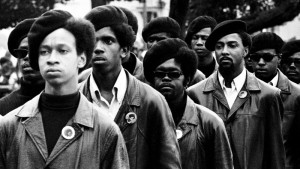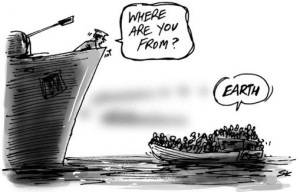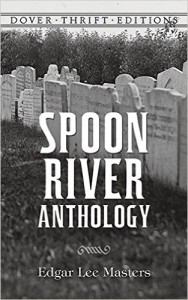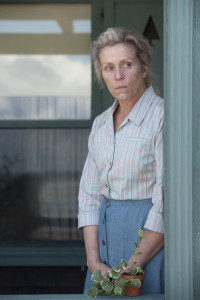‘The Black Panthers: Vanguard of the Revolution’
September 23, 2015New documentary by director Stanley Nelson chronicles the Black Panthers.
From Fresh Air with Terry Gross:
“Nearly 50 years ago, in 1966, a group of six black men in Oakland, Calif., came together in an effort to curb police brutality against African Americans in the city. Because of a quirk in California law, the men were able to carry loaded weapons openly. The Black Panthers, as they became known, would follow the police around, jumping out of their cars with guns drawn if the police made a stop.
“They would observe the police and make sure that no brutality occurred,” director Stanley Nelson tells Fresh Air’s Terry Gross. “What they were really doing was policing the police.”
(Stanley Nelson’s previous films include the documentary Freedom Summer, which he wrote, produced and directed.)
Nelson, who chronicles the Panther movement in his new documentary, The Black Panthers: Vanguard of the Revolution, says the group was a response to what some felt were the limitation of the non-violent civil rights movement.
“When the Panthers came into being, there were a number of people, especially young people, who kind of felt that the civil rights movement of Martin Luther King … had run its course,” Nelson says. “It had gotten what it could get, and something else was needed; new tactics were needed.”
Led by Huey Newton and Bobby Seale, the Panthers put forth a 10-point program, which sought to address a host of problems, including police brutality, poor housing and sub-par education.
The director notes that when he began the film seven years ago, he could never have anticipated that it would be released at a time when issues of police brutality and justice for African Americans were so prominent.
“I think what it has done to be in this moment has opened people’s eyes,” he says. “It’s made people want to see the film and want to understand how this was happening 50 years ago and it’s still happening now.”
The Pope and his American poet…
TIME Magazine
‘Pope Francis cited a Midwestern poet when urging U.S. bishops to welcome Hispanic immigrants into their churches Wednesday.
“I am a native of a land which is also vast, with great open ranges, a land which, like your own, received the faith from itinerant missionaries,” he said. “I too know how hard it is to sow the Gospel among people from different worlds, with hearts often hardened by the trials of a lengthy journey.” He then argued that they should rely on the “epic struggle of the pioneers and the homely wisdom and endurance of the settlers.”
“As one of your poets has put it, ‘strong and tireless wings’ combined with the wisdom of one who ‘knows the mountains,’” he added.
The poet in question is Edgar Lee Masters, from President Obama’s home state of Illinois. An attorney and author who lived in the first part of the 20th century, Masters published 21 books of poetry, but his Spoon River Anthology, published in 1915, is considered his masterpiece.
Beautifully brilliant.
Frances McDormand speaking to NPR last year before the launch of HBO’s Olive Kitteridge (she won an Emmy for the role Sunday night).
~
‘One of the reasons that I am doing press again after 10 years’ absence is because I feel like I need to represent publicly what I’ve chosen to represent privately — which is a woman who is proud and more powerful than I was when I was younger. And I think that I carry that pride and power on my face and in my body. And I want to be a role model for not only younger men and women — and not just in my profession, I’m not talking about my profession. I think that cosmetic enhancements in my profession are just an occupational hazard. But I think, more culturally, I’m interested in starting the conversation about aging gracefully and how, instead of making it a cultural problem, we make it individuals’ problems. I think that ageism is a cultural illness; it’s not a personal illness. Getting older and adjusting to all the things that biologically happen to you is not easy to do, and is a constant struggle and adjustment {…} I want to be revered. I want to be an elder; I want to be an elderess. I have some things to talk about and say and help. And, if I can’t, then — not unlike Olive — I don’t feel necessary.’
NPR-All Things Considered




